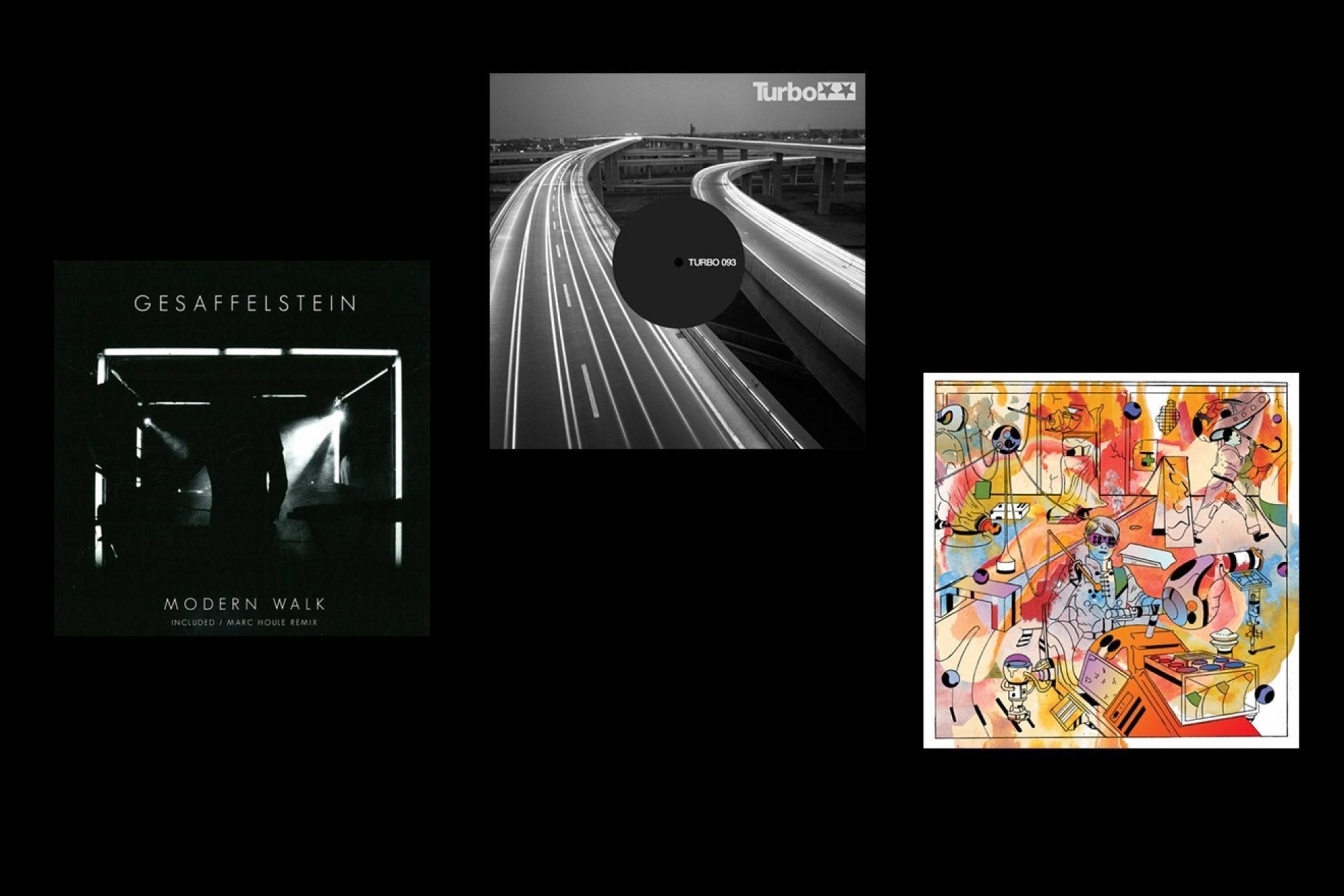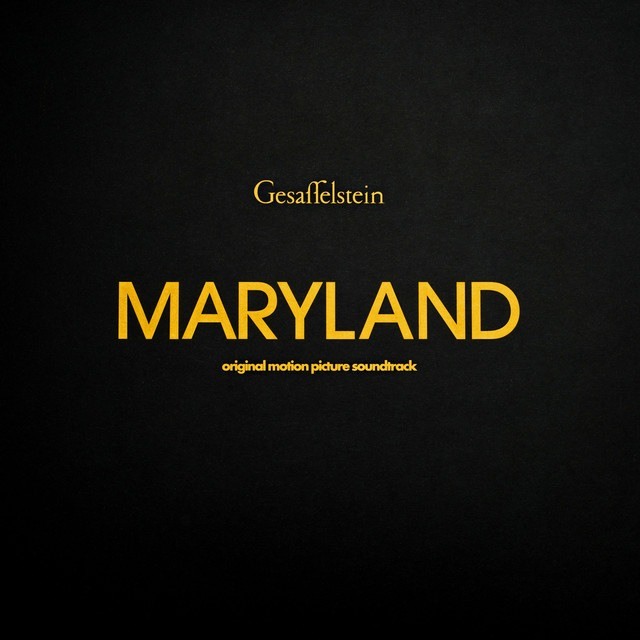 Features
Features
Gesaffelstein: Everything you need to know about the enigmatic producer
Gesaffelstein: a deep dive into the world of the enigmatic producer following the release of sophomore album 'Hyperion'
Gesaffelstein is acclaimed for his innovative approach to dance music, but now with his new album ‘Hyperion’ released via Columbia Records on March 8th, he’ll transcend the sub-culture to reach a diverse range of avid listeners around the world.
Throughout his career, Mike Lévy’s persona has been shrouded in mystery. His presence both on social media and in real life has earned him a reputation as the dark prince of techno. With early influences from Depeche Mode, Detroit electro and EBM, Gesaffelstein developed his unique sonic textures with genius sound design.
While he had early releases on labels like OD and PIAS, he soon joined The Hacker and Alexandre Reynaud to launch the Zone imprint in 2009 that acted as a platform for Lévy to release much of his own material. That said, it was his ‘Variations’ EP, released through Tiga’s Turbo Recordings, that gave Levy increased attention worldwide, as it displayed his edgy and radical sound to the world.

As his love for this sound developed he began tinkering and playing around with different synths and styles. Lévy formed a relationship with a formidable producer that would help shape his career as it’s known today. Michel Amato aka The Hacker is widely regarded as one of the most prolific electro artists of the last 25 years and his work with Miss Kittin and David Carretta helped to guide Gesaffelstein creatively.
About the French producer, Gesaffelstein said “I had been obsessed with his sound, because for me his music is the perfect combination of the past and the future. It was the only music I understood because everything he made was so logical for me".
The two formally met in 2007 when Lévy handed The Hacker a CD with his music. A few days later, Michel got in touch and the rest is history. The pair became good friends and Amato acted as a mentor to Gesaffelstein, helping him to hone both his production style and DJ technique. One of his earliest releases arrived via PIAS in the form of the ‘Modern Walk’ EP. The quintessentially electro-style track put his name out there before his next record came out the following year via Zone.
Zone is the label formed by The Hacker, Gesaffelstein and Alexandre Reynaud in 2009 and during his formative years, acted as a platform for Lévy to release a wealth of his own music. ‘The Operator’ was the very first release on Zone but it was through Turbo Recordings, with the help of label boss Tiga, that Gesaffelstein got his biggest break.
Once again sending his music out, Tiga received Gesaffelstein’s tracks and replied straight away. The ‘Variations’ EP was the record that got Lévy noticed around the world and he would go on to release a further three EPs via the label, including ‘Conspiracy’ Parts 1&2. Some of his most lauded tracks to date were included in those records, with tracks like the venomous 109bpm slammer ‘Viol’ and ‘OPR’ a track that was even used in a BMW commercial.

Around this time, Gesaffelstein formed another integral relationship with fellow French producer Brodinski. Having also come up via Turbo Recordings, when Brodinski first heard the Variations EP, he called Mike and both developed a strong friendship and working relationship followed. In 2011, Brodinski started his Bromance label which would go on to house and foster a collective of artists including Louisahhh and the Club Cheval crew. The label’s first release was a split EP from Brodinski and Gesaffelstein and Lévy’s ‘Control Movement’ was played by DJs around the world.
His stabbing, urgent and distinct techno and electro hybrid would be ever present in his later productions and in 2012 he returned to Bromance with the ‘Rise of Depravity’ EP where ‘Belgium’ typified an even more vicious incarnation of his sound. His remix work around this time was also becoming the talk of the dance music world, as he turned in a series of mesmerising edits. Artists included Boys Noize & Erol Alkan, Justice and perhaps most popularly, Lana Del Rey who enlisted Lévy to re-imagine ‘Blue Jeans’ from her critically acclaimed album ‘Born To Die’.
In the summer of 2013 though, Gesaffelstein’s career trajectory would redirect straight to the stars as none other than Kanye West requested his production talents alongside Brodinski and Daft Punk. Levy ended up working on ‘Black Skinhead’ and ‘Send It Up’ from the electronically-informed ‘Yeezus’. From then on, Gesaffelstein had become a worldwide name and later that year he released his debut album ‘Aleph’ meaning Alpha in Hebrew. The album expertly navigates his visceral sound while offering up nightmarish interludes and emotion-laced breathers. The first single to drop from the album was ‘Pursuit’ and featured a wildly unique music video from hotly-tipped production duo Fleur & Manu. Other singles included the razor-sharp ‘Hate & Glory’ and title track ‘Aleph’.
The album was well-received by music fans globally and he embarked on a mind-boggling live show around the world, that featured Lévy on top of a temple-esque plinth, drenched in god-like beams from above and a retina-burning wall of light behind. The next five years is where Levy went into an almost hibernation-type state. The producer deleted everything from his social media and any rare sightings of the elusive artist for DJ sets were long-gone.
He made an appearance however when he composed the original score to the 2015 film ‘Maryland’. It was his first foray into the movie business and the film, starring Diane Kruger, was an official selection at Cannes Film Festival. Followers of Lévy will have noticed his down-tempo, ominous production within the film and it satisfied fans until new music of Gesaffelstein's was revealed.

More silence from the mysterious Frenchman followed until early 2018 where he teamed up with chart-topping Canadian artist The Weeknd. He produced both 'I Was Never There' and 'Hurt You' from his My Dear Melancholy EP and once again worked with Daft Punk member Guy Manuel De Homem-Christo on the record.
The two tracks that Gesaffelstein features on showcase a more refined, more pop-focused sound, one that appeals to the masses yet still maintains his trademark, eerie production style.
On Spotify the two tracks have amassed over 150 Million plays and sparked a close working relationship with The Weeknd.
As the year went on, fans were beginning to think Gesaffelstein might return and following a teaser-campaign towards the end of the year, Lévy stepped back into the spotlight with his comeback single ‘Reset’. Before long, his second album ‘Hyperion’ was announced and another new single ‘Lost In The Fire’, featuring his newly-established collaborator The Weeknd, dropped to the masses.
The track exploded around the world, featuring on radio stations all over the globe and acting as Gesaffelstein’s first proper commercial hit. No longer just a king of the underground, Lévy’s emotion-laced track made it into the top ten of the official UK charts and even went to number one in Lebanon.
After weeks of hype about the album, Gesaffelstein has returned in full force. The Frenchman has come a long way in the last decade, from humble beginnings handing out CDs to label bosses, to working with Kanye West and now releasing a new album featuring HAIM and Pharrell.
The N.E.R.D frontman and production wizard Pharrell appears on the final single from the album, ‘Blast Off’ and the track acts as a perfect blend of Gesaffelstein’s newly found pop-prowess alongside his dark, pulsating electro stylings.
With every new single and new piece of music from Lévy, it’s clear that he’s using his unique production talent to work with the biggest artists in the world and the results are clear to see.
If anything is certain with Gesaffelstein, it’s that nothing is certain and we’ll be forever kept on our toes as lovers of his sound. As he said to Mixmag in 2013 “I have no idea what I’m going to do, but even when I do know, I’m going to keep it to myself”.
Not much has changed then.


